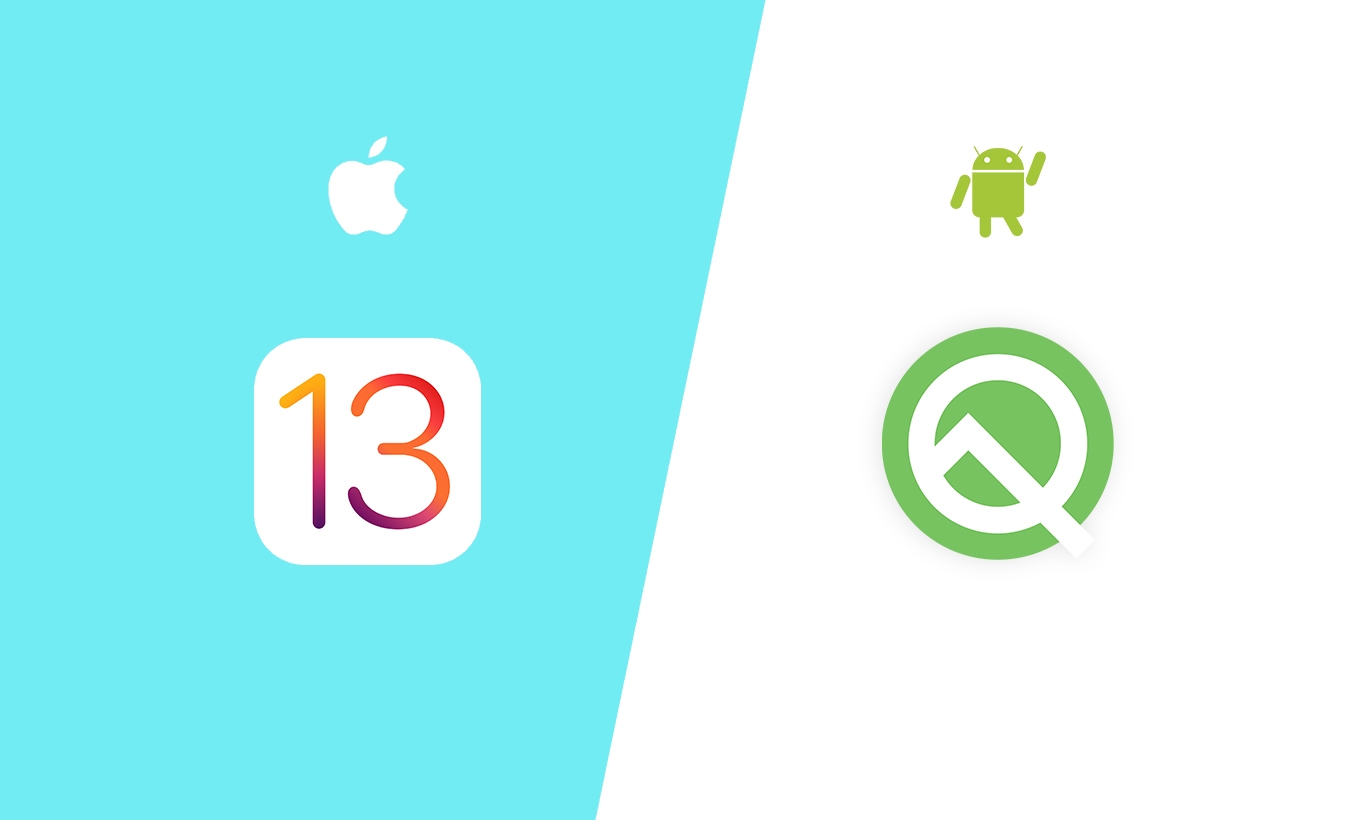New SDKs Available

iOS and Android just released new versions of their operating systems

It's that time of the year, iOS and Android just released new versions of their operating systems. Keep reading this post to find out how their OSes match up and what you can expect from our new SDKs.
This is the latest iteration of the major operating systems out there and it shows us how much they share a common goal. Both giants keep playing a cat and mouse game to win the preference of an increasing mobile audience, launching similar functionality that enhances user experience, privacy and digital wellbeing.
Dark mode is here
Besides letting you switch from a bright white screen, turning on a dark mode can offer the benefit of preserving battery life by lighting up fewer pixels on the screen and also reducing eye strain in lower lighting conditions.
Although Google already unveiled this functionality last year when it launched Android Pie, it never really used it consistently throughout its apps. In Android 10, support for Dark Mode is more evenly distributed across the mobile OS, although some apps like Chrome still lack a dark mode option.
On the other hand, Apple took the lessons it learned from Dark Mode in MacOS Mojave in 2018 and is now releasing it in iOS 13 uniformly in all their apps. From wallpaper, widgets and notifications to Calendar, Messages and Maps.
When it comes to 3rd party apps, i.e., your app, you will be able to transition to a dark mode version in Android without having to worry about refactoring your apps, although it may require some tweaking. In iOS, this transition requires a little bit more preparation although you can opt-out from Dark Mode on a per-view basis or even in a app-wide basis if you want. When it comes to our SDKs, you will not have to worry much about it, although you can still customize what our UI elements will look like in this new version.
Minding your Privacy
Both platforms are cracking down on the way apps share private data with 3rd parties. This includes how location data is shared and used by your app. Like we mentioned in this article, posted a couple of weeks ago, both Apple and Google are changing how your apps use location data, which will ultimately impact your apps.
Start today!
As of today, you can use our latest SDKs, for that you will need to use the latest Xcode 11 and update your Android SDK to API level 29. Our documentation is updated and available here.
What about React Native and Flutter?
In the upcoming weeks we will be releasing updates for the latest version of these frameworks. You can always keep using the available releases for these frameworks without any problem, we are currently working to update our React Native and Flutter libraries in order to support Android 10 and iOS 13.
Questions?
As always, if you have any questions, we are available via our Support Channel to further guide you.
